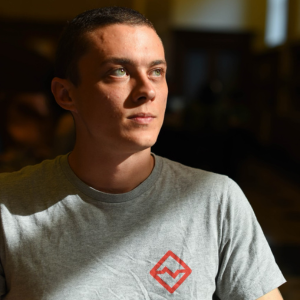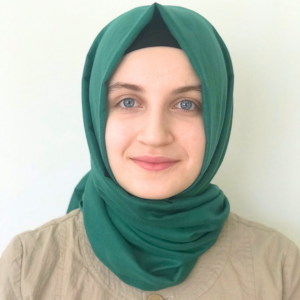Turning Theory into Practice: Students' Insights from the Africa-focused Collaboratory
Four students share their three-month experiences from Columbia's Global Collaboratory Africa Series.
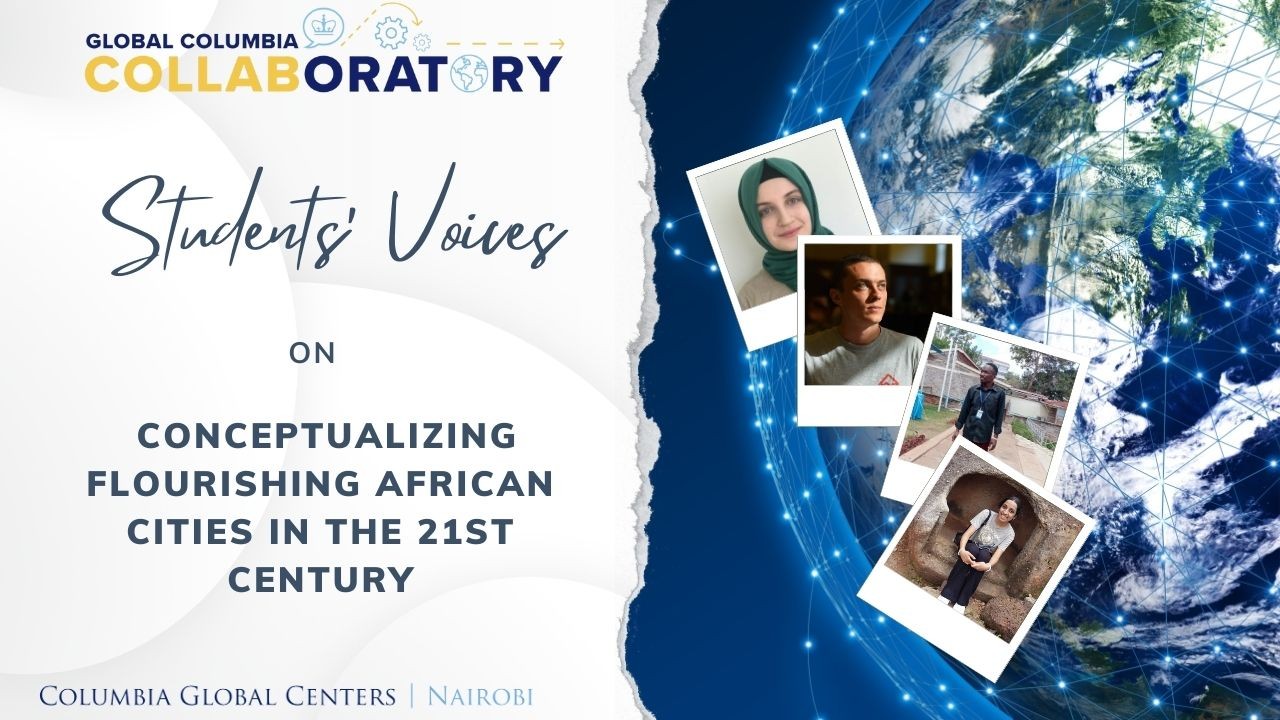
Columbia Global Collaboratory
Columbia's Center for Undergraduate Global Engagement initiated the Global Columbia Collaboratory (GCC) to catalyze innovation, accelerate research progress, and promote a holistic approach to solving real-world problems, ultimately driving advancements that can benefit society. The Global Columbia Collaboratory program is a free, virtual, not-for-credit global learning opportunity for currently enrolled undergraduate students worldwide. Students worldwide participate in three Global Seminars with sustainability experts, scientists, and NGO practitioners, culminating in a collaborative project within three months.
The Nairobi Center, in partnership with GCC and City Diplomacy Lab, initiated an Africa-focused Collaboratory that drew more than 44 students from 13 countries, representing 16 universities across Africa, Asia, and Europe. Four students who participated in the program shared their opinions on the experience and the aspects that stood out to them the most.
What did they have to say?
I am Jack Torres, a senior at Columbia University studying Middle Eastern, South Asian, and African studies through a dual degree program with Trinity College Dublin. Born in Santa Fe, New Mexico, and raised in Boston, Massachusetts, my focus has been on Arabic and Spanish languages, concentrating on North Africa and the Mediterranean. Introduced to the Global Collaboratory by a friend studying Sustainable Development, I joined to gain insights for my thesis on international aid organizations in West Africa. The experience has been enlightening, exposing me to diverse projects in African cities and fostering international collaboration. The impactful second Global Seminar, "Reimagining African Cities: Design, Participation, and Diplomacy," coincided with my university studies, bridging theoretical discussions in class with practical insights from Urban Studies experts. Assigned to work with my pod-mates, Dylan Campos from Connecticut and Brenda Kajuju at Kenyatta University, we collaborated on a project for the Grow Biointensive Agriculture Centre of Kenya (G-BIACK).
Collaboratory Seminar
G-BIACK empowers small-scale farmers with sustainable agricultural techniques for communal growth and development. Despite time zone and schedule challenges, we helped develop a fundraising campaign for their Seed Sovereignty to protect the ownership of indigenous crop varieties and traditionally important plant seeds. We created grant proposal letter templates, a pitch deck, and informational literature about their campaign and its importance to the wider crises of food security, climate justice, and poverty in Kenya. Working with Brenda has provided invaluable perspectives on Kenyan food systems, reinforcing our commitment to the NGOs we support and each other. In these collaboratory groups, we serve a dual purpose – contributing to NGOs and fostering mutual support among members.
I am Zeynep Karatas, a Turkish student pursuing a double major in International Studies and Political Science at the University of California, Irvine, with a regional focus on Africa and the Middle East. Although city structures and food chains are not my specialty, I sought admission to the Columbia Global Collaboratory to better understand public policy and sustainability issues. Aspiring to work as a lawyer in Africa and the Middle East, I aimed to comprehend local contributions and legal frameworks for community development. Environmental law, particularly understanding how communities achieve sustainability through local means, also captivated my interest. My Collaboratory experience was exceptional. Program directors Gale Lynch and Anya Leinberger were instrumental in enriching the program. Working with my podmates, Priya and Saanvi, was a pleasure, and our collaborative efforts were fueled by their intelligence and kindness. One of the highlights was the third Collaboratory session featuring Kevin Kinusu, Manager for Africa Bioenergy Programs Limited. His insights into biogas and biodigesters were enlightening and significantly contributed to structuring our project with Kenya Biogas.
Collaboratory Seminars
The first seminar, exploring the global economic monopoly of certain foods and its impact on diets, prompted a reevaluation of my eating habits. My teammates and I designed a website template for our Collaboratory project with Kenya Biogas, which strives to develop the biogas sector in Kenya by supporting its usage as a locally available, commercially viable, and sustainable energy source to promote Bio-energy Community Based Organizations (B-CBOs) in Nairobi. The template serves as a hub to enhance interaction between communities and showcases the vital work of B-CBOs. Though a first for all of us, this endeavor was fun and interesting. We compiled information and seamlessly integrated it into the template. Kenya Biogas provided invaluable support throughout, and we used their information to set an example for other CBOs. The experience was amazing and deeply fulfilling, aligning with my aspirations to contribute meaningfully to sustainable initiatives in the regions I aim to serve as a future lawyer.
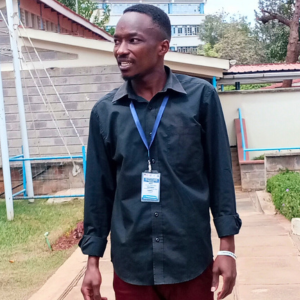
I am James Waichoka, a Kenyan by birth, and I reside in the country. I studied at Kenyatta University, obtaining a bachelor's in environmental planning and management. My key focus has been on air quality status monitoring with my project titled "Spatiotemporal analysis of air quality status in Nairobi Metropolitan Region before, during, and after the COVID pandemic." I joined the Collab mainly to share my acquired environmental skills and learn from other students because I believe in teamwork and sharing.
From Mumbai
During the discussion sessions, what resonated with me the most were the various strategies for addressing some challenges faced by African cities, such as poor air quality through a shift to LPG. The collaboration with my fellow students has been successful due to the diverse backgrounds of the participants, which has enriched my knowledge. I have been able to network and make a new team that will foster a direction of change for our continent and Mother Earth.
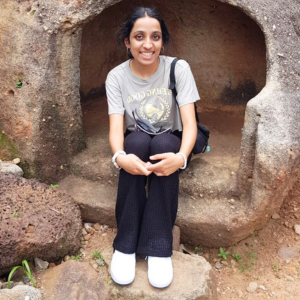
I am Saanvi Magod, a first-year student at Ashoka University in India, still exploring my major. My deep interest in sustainability perfectly aligns with the Collaboratory's goals. Joining the Global Collaboratory, I sought to learn more about the sustainability initiatives in African cities combating climate change. The opportunity to contribute to a cause dear to me, especially by collaborating with an NGO, added to the appeal.The experience has been enriching as I also had an opportunity to highlight my role as a speaker in the first 'Spark session,' where I shared my sustainability journey. Among the seminars, "Rethinking Food Systems in Africa," which explored diverse practices in food consumption, resonated most.
In our pod, partnering with Kenya Biogas, we developed a website template for their Community-Based Organizations, a rewarding endeavor. Our combined efforts aim to amplify these organizations' impact through innovative solutions. Collaborating with diverse pod members enhanced my problem-solving skills, emphasizing cultural sensitivity and open-mindedness. The collaborative environment fostered creativity and adaptability, making this experience one of the most enriching of my life.
